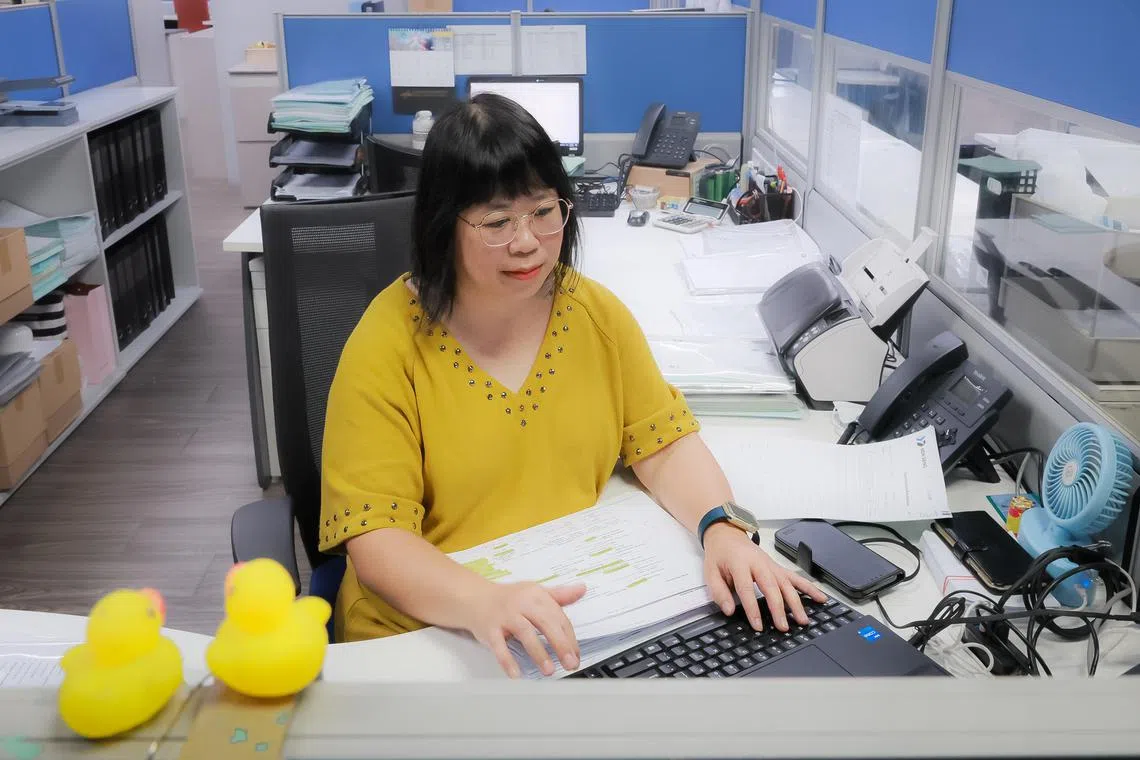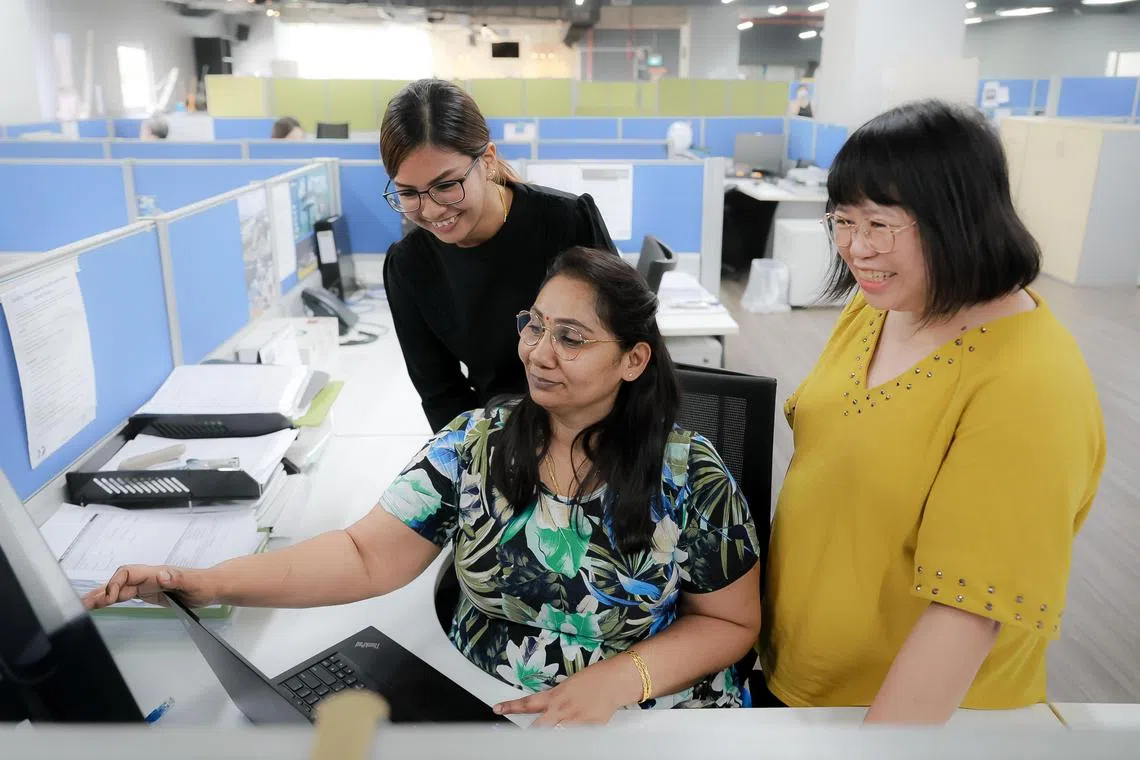Wage hikes for nearly 40,000 administrators, drivers from March 1
Sign up now: Get ST's newsletters delivered to your inbox

Administrative assistants, such as Ms Chan Nyet Lan of Bok Seng Logistics, can expect to earn at least $1,500.
ST PHOTO: GAVIN FOO
SINGAPORE – About 32,000 administrators and 5,000 drivers working full-time will get pay hikes come March 1 as Occupational Progressive Wages (OPW) kick in for these workers who are Singaporeans and permanent residents.
Administrative assistants can expect to earn at least $1,500, for instance, while general drivers can expect a gross monthly salary of at least $1,750.
The OPW model, developed by the National Wages Council (NWC), will apply to about 195,000 full-time and part-time administrators and drivers from March 1.
These workers’ pay will increase along a wage ladder, pegged to training and productivity improvements.
This marks the first time progressive wages will apply by occupation, regardless of the sectors the workers’ employers fall under.
Progressive wages are already in place for a host of sectors,
Although drivers and administrators are occupations that exist across a range of different sectors, the skills needed to perform such roles are relatively consistent, allowing a progressive wage to be set, Mr Zaqy Mohamad, Senior Minister of State for Manpower, said on Tuesday.
He was on a visit to home-grown logistics firm Bok Seng, which employs 260 staff, of whom 83 had received pay rises in June 2022, ahead of the OPW taking effect.
“These are meaningful wage increases among our lower-wage workers, and will help them especially during these times, while boosting capability and skills development as well,” said Mr Zaqy.
From March 1, employers must meet the wage and training requirements of the OPW to renew existing work passes or apply for new work passes.
Employers must ensure that their Singaporean and permanent resident administrators and drivers attain at least one Workforce Skills Qualifications statement of attainment, with no restriction on course, or attend an in-house training programme.
However, the Ministry of Manpower will give employers time to adjust and comply with the wage requirements, from March to August. It said it would approach the implementation by educating employers rather than with enforcement.
“Those who do not comply with the requirements during this transitional period will not have their work pass privileges suspended,” said the ministry.
Mr Zaqy said the transitional period would be particularly useful for small and medium-sized enterprises and their employees, both of whom may not immediately realise the OPW model applies to them.

Bok Seng Logistics administrative staff (from left) Azirah Adnan, 28; Parvaetrrhi Balakrishna, 48; and Chan Nyet Lan, 51, at their workplace in Tuas.
ST PHOTO: GAVIN FOO
The NWC will review the OPW wage requirements later in 2023, for March 2024 and beyond.
The National Trades Union Congress (NTUC) will spread the word to workers through its various unions about the OPW model and its benefits for workers and employers, said Mr Fahmi Aliman, director of NTUC’s operations and mobilisation division and executive secretary of the Supply Chain Employees’ Union.
Mr Oh Bee Lock, chief executive of the Singapore Logistics Association, noted that while the OPW model is relevant in any industry, most drivers in the logistics industry are likely already paid above its stipulated level.
Citing drivers who can also operate truck-mounted cranes as an example, he said: “In the logistics industry, most of our companies are actually compliant because of the demand and the specialised skill set.”
Logistics firms still paying below the OPW level are unlikely to be able to retain and motivate workers, he added.
One administrator who will benefit from the OPW is Ms Chan Nyet Lan, 51, who works as an accounts assistant at Bok Seng, creating invoices and replying to customer queries on quotations.
Ms Chan, who received an 8 per cent pay rise ahead of the OPW coming into force, said she had shelved her studies for a basic accounting certificate awarded by the London Chamber of Commerce and Industry due to work and family commitments.
Now, with the OPW model’s promise of job progression with training, and Bok Seng’s support, she is excited about taking them up again.
“I would like to resume studying for the certificate and, hopefully, take up a role as an accounting executive to contribute to different functions in the firm,” said Ms Chan.


